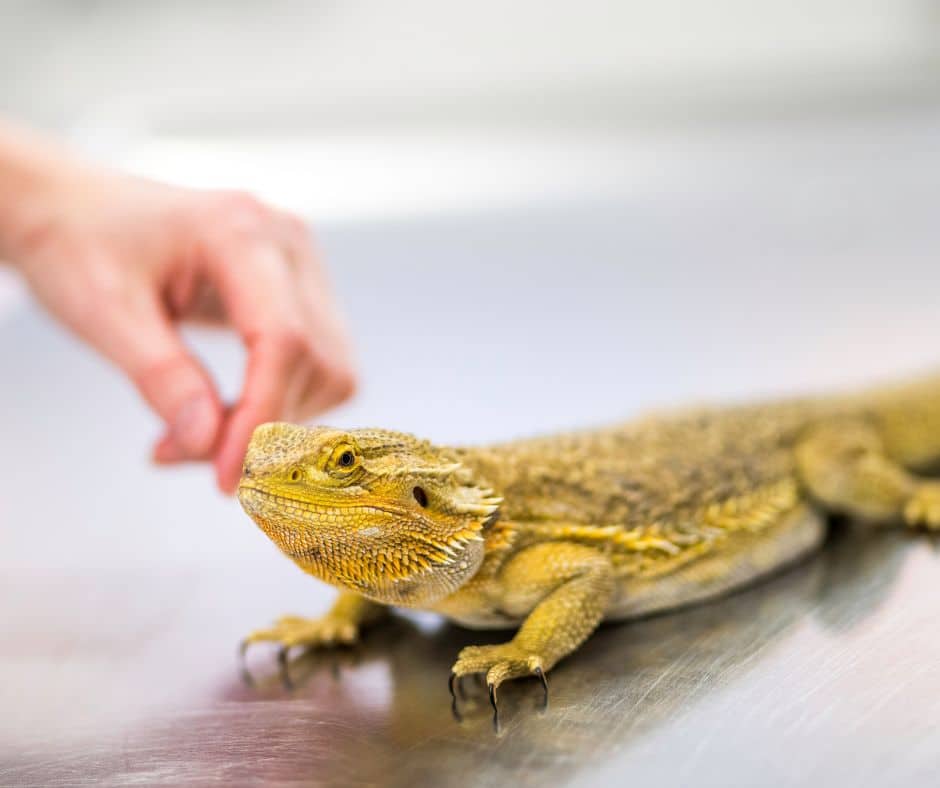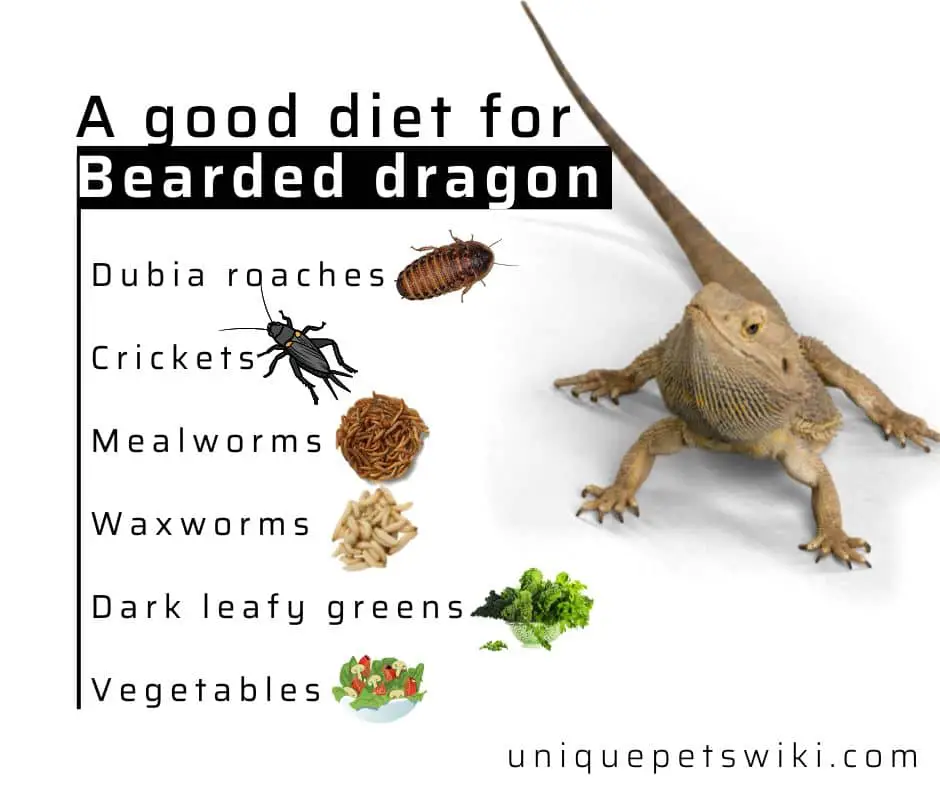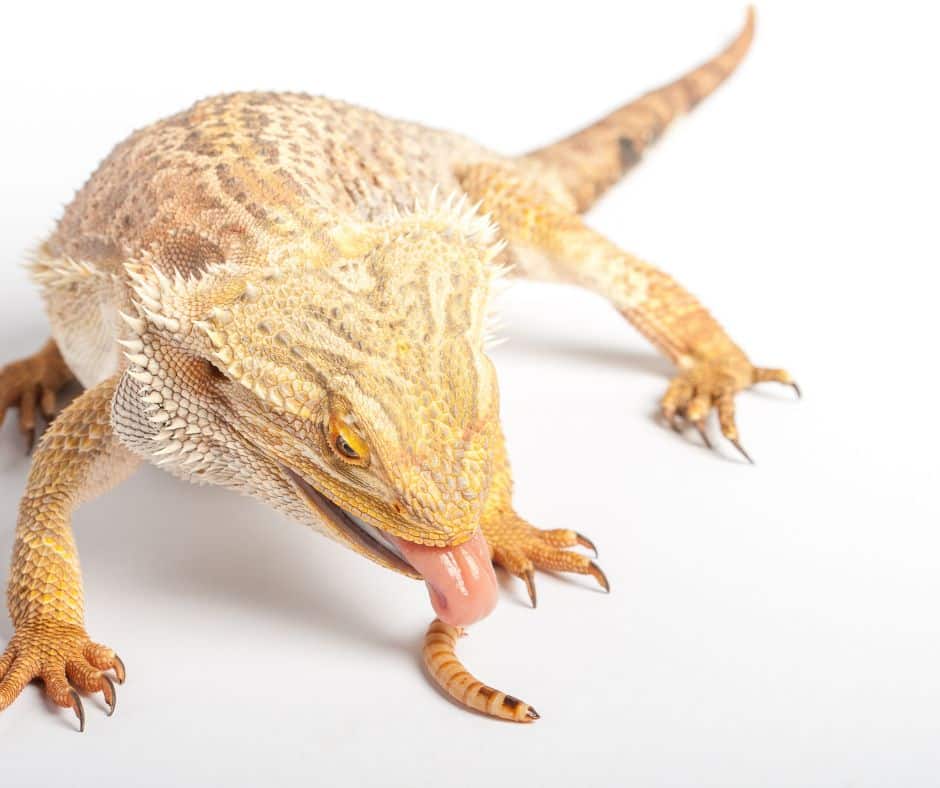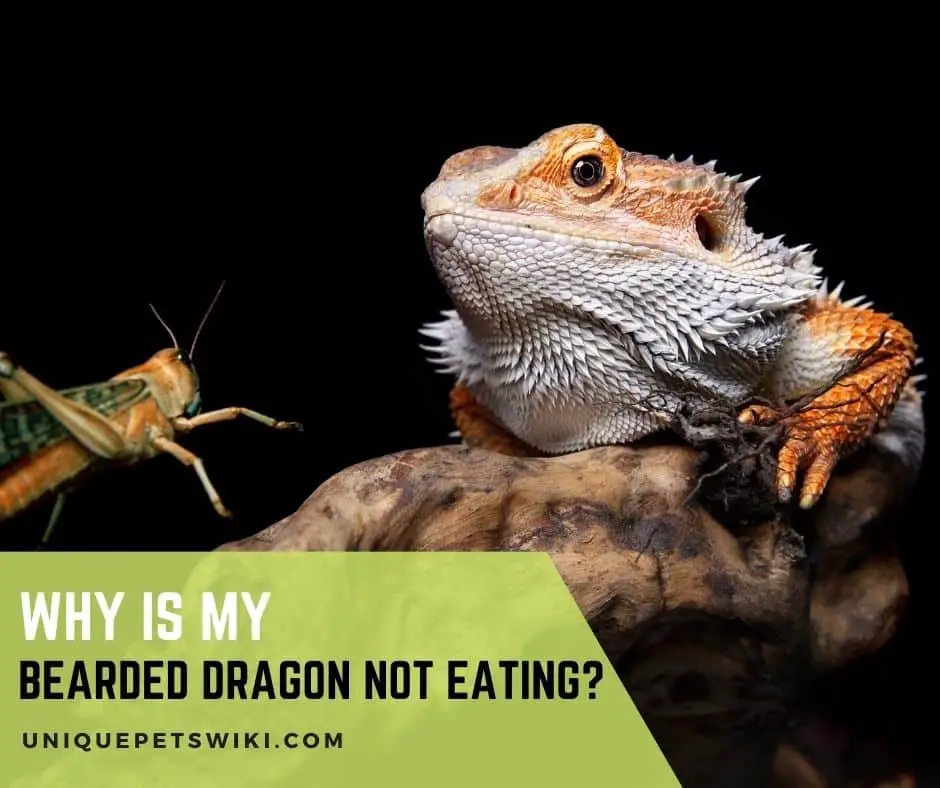Having a pet bearded dragon can be a wonderful experience. But when your dragon isn’t eating, it can be a cause for worry. There can be many causes for your bearded dragon not to eat, and it’s important to identify what the problem is so you can help them. Here are the three most common culprits for why your bearded dragon isn’t eating.
Contents
3 Main Reasons Your Bearded Dragon Isn’t Eating
If your bearded dragon isn’t eating, it’s important to identify the cause as soon as possible. The three most common reasons why your beardie isn’t eating are health issues, problems with the enclosure, and an incorrect diet.
Health Issues

One of the most common health issues that can stop your bearded dragon from eating is an intestinal parasite. To diagnose an intestinal parasite, your vet will likely do a fecal exam, which involves looking at a sample of your dragon’s droppings under a microscope. If parasites are found, your vet will prescribe a dewormer to help get rid of them.
The second cause of anorexia in a bearded dragon can be a condition called rotten mouth. It results in the mouth of your dragon becoming inflamed and infected. This can make eating difficult and uncomfortable. Common symptoms of BDMR include:
- swelling around the mouth
- difficulty eating and drinking
- discoloration of the teeth and gums
- foul smell from the mouth
- and excessive drooling.
Bearded dragons can become stressed from changes in their environment, such as new people, loud noises, and unfamiliar animals. Stress can cause a bearded dragon to stop eating.
Finally, another health issue that can cause a lack of appetite is a calcium deficiency. Calcium is important for your dragon’s growth and development, and a deficiency can lead to a number of health issues, including a lack of appetite.
Problems With Enclosures
The most common problem with enclosures is too much humidity. Bearded dragons need a certain level of humidity in order to stay healthy, and too much humidity can cause them to become stressed and stop eating.
Another common reason for a bearded dragon not eating is the size of the tank. If the tank is too small, the bearded dragon may not be comfortable in the enclosure, causing him to become stressed and not eat. A tank is big enough for a bearded dragon to walk around, turn around and bask comfortably. The tank should also be cleaned regularly to maintain good hygiene and health.
The third reason could be the presence of a tank mate. Many bearded dragons can’t handle the stress of having a tank mate and may become so stressed that they stop eating. Before getting a tank mate, it is important to research the compatibility of the two dragons and ensure that the tank is big enough for two dragons.
Wrong Diet

The diet of a baby dragon is very different from that of an adult dragon. Baby dragons are known to feed mostly on insects, while adult dragons tend to prefer greens. This difference in diet is important to consider when caring for a dragon, as providing the wrong type of food can lead to health issues.
A good diet for a bearded dragon should include a combination of insects, such as dubia roaches, crickets, mealworms, and waxworms as well as dark leafy greens and vegetables.
Some bread dragons are known for their picky eating habits, so it’s important to make sure that their food is in good condition. If the food is not of high quality or has gone bad, it can cause a bearded dragon to stop eating altogether.
Other Reason
Shedding and brumation are two natural processes that bearded dragons go through as part of their life cycle. During these times, bread dragons often stop eating and may even become lethargic. It’s important for owners to understand the signs of shedding and brumation in order to properly care for their pet during these times.
By understanding the role of shedding and brumation in a bread dragon’s life, owners can ensure their pet is healthy and happy throughout its life.
How Long Can A Bearded Dragon Go Without Food?
Generally, a healthy bearded dragon can go without food for up to four days depending on size, age, health, and the reason for your bearded dragon not eating. However, if they are young, they may need to eat more frequently.
If your beardie goes longer than two weeks without food, it can cause health issues such as weight loss, lethargy, and even organ failure. It’s important to take them to the vet if they go longer than two weeks without food, so that the cause can be identified and treated if necessary.
How To Get Your Beardie To Eat
Once you’ve identified the cause of your beardie’s lack of appetite, it’s time to take steps to get them to eat. Here are some tips to help get your beardie to eat.
- Make sure the enclosure conditions are correct. Make sure the humidity levels in the enclosure are between 30-40% (50% BUT ONLY DURING NIGHT TIME). You can measure the humidity using a hygrometer.
- In terms of lighting, it’s important to make sure the enclosure has a UVB light, as this is essential for your dragon’s health. The basking area should be between 95 and 110 degrees Fahrenheit, while the cool side should be between 70 and 85 degrees Fahrenheit.
- Provide plenty of variety in your beardie’s diet. Offer a variety of vegetables, fruits, and insects to ensure they are getting all the nutrients they need.
- Make sure your beardie is getting enough calcium and vitamins. Dust their food with a calcium supplement every other day and feed them a multivitamin supplement once a week.
- Make sure your beardie is healthy. If you suspect they are ill, take them to the vet as soon as possible.
- Finally, it’s important to make sure the enclosure is free from any stressors, such as other animals or loud noises. This can cause your dragon to become stressed and stop eating.
- If all else fails, you may need to force-feed your beardie. This should only be done as a last resort and should be done under the advice of a vet.

Key Takeaway
It’s essential to take your bearded dragon to the vet when they stop eating, as this could be an indicator of a serious health problem. However, other causes such as changes in behavior and inappropriate enclosures or diets can also impact a lizard’s appetite. To get your pet back to normal, ensure their habitat is suitable, provide them with different food options, and try offering treats as a reward.
